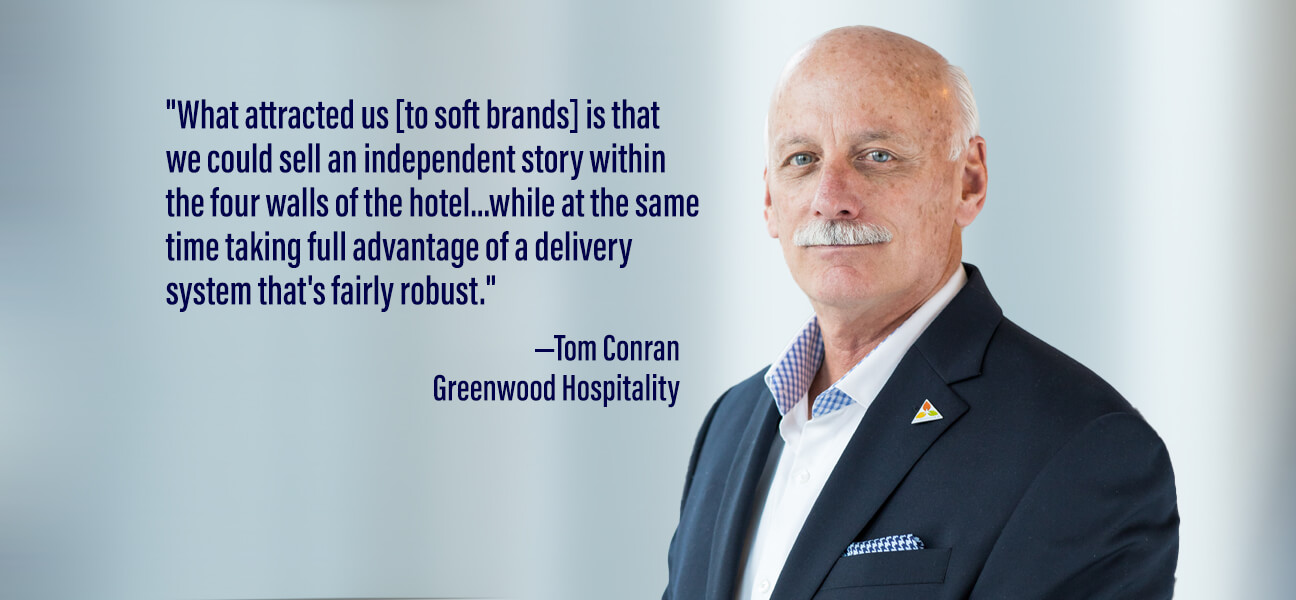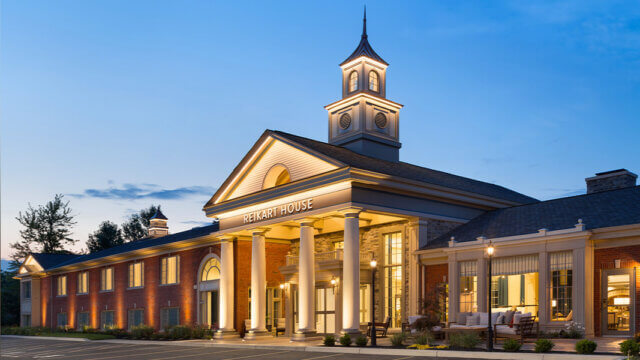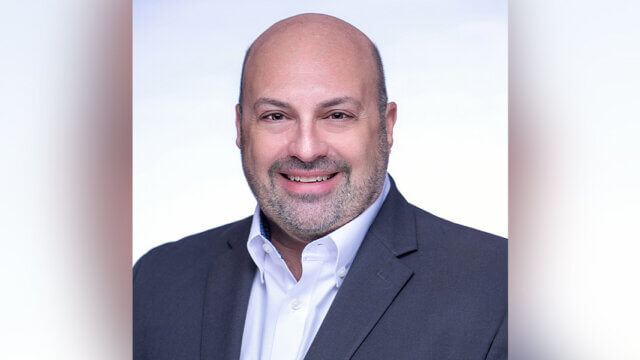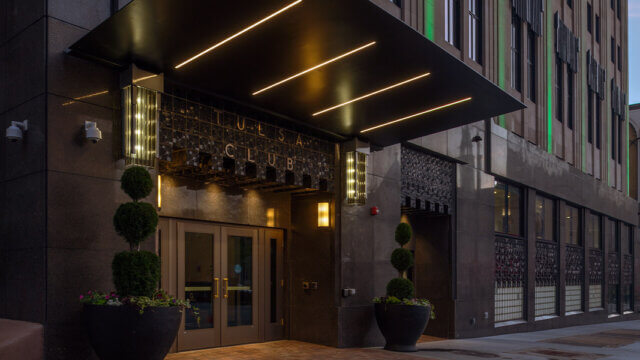Tom Conran, principal, Greenwood Hospitality, knows a thing or two about managing soft-branded hotels. His company currently operates eight soft-branded properties and has three others under development—representing a little more than a third of its portfolio.
“Fundamentally, [soft branding] allows your hotel to remain independent in a large part,” he said. “Think about it this way: we have a hotel that is independent in status and in name, and at the same time, we can take full advantage of the [brand company’s] delivery system. What attracted us is that we could sell an independent story within the four walls of the hotel and create some very unique spaces and services, while at the same time taking full advantage of a delivery system that’s fairly robust.”
He pointed out that guests resonate with soft-branded hotels because of that individual story, most notably in the upper-tier segments.
“What we found is, especially in the upscale space, our customer base is looking for something that’s not vanilla in nature,” Conran said. “They’re not looking for homogenized hotels. They’re looking for something that has a story to it, and we’ve done a very good job of creating storylines in each of our soft-branded hotels—whether that be an art storyline or one based on the history of the hotel or location. If you do that well and really drive your guest’s experience, you can really drive rate as well. So, it makes all the sense in the world to us.”
Greenwood, which formed a strategic partnership with Hotel Equities in March, focuses heavily on food and beverage at all of its hotels. Conran noted that F&B at soft-branded hotels also tells a story.
“In our space, we have a very high-profile, overt personality in food and beverage, and as we create these independent experiences, we feel that food and beverage really drives and supports that overall positioning,” he said. “And, I really think that’s what our client base is looking for.”
While soft-branded hotels have an attachment to a brand company, they are mostly left alone in the way they operate, noted the Greenwood executive.
“If you looked at the operating guidelines of a homogenized hotel, it’d be hundreds of pages long,” said Conran. “When you get into this soft-branded space, those operating guidelines are very short and not confining at all. I choose how I’m going to greet guests; whatever services I want to create, I create.”
However, brand companies will come to the hotel to perform what they call an experiential audit because, Conran said, “When you present your story, it has to be genuine in nature. You can’t just create a story out of thin air.”
When they visit the hotel—unannounced, of course, they’re “looking to see how that brand story is supported,” he said. “These experiential audits are important to make sure you’re on task and doing what you said you were going to do.”
It is important that everyone working at the hotel knows its story and is able to convey that message to guests.
“You just can’t do it at the front desk; you have to do it in your guestrooms and everywhere else the guest is going to come in contact with,” said Conran. “We believe that all of our ambassadors [Greenwood employees] need to know the story and be able to support the story.”
He pointed out that, from a lending perspective, soft-branded hotels are more attractive vs. pure independent hotels.
“The lending community looks at the soft branding as a safety net because they know there’s a strong brand delivery system behind that soft brand,” Conran said. “Typically, we receive upwards of 45% to 60% of our business through the brand channels, but those customers are still looking for that independent experience. Lenders are looking at it and going, ‘OK, I can underwrite this to a greater degree because there’s a little bit more comfort that there’s a big brand behind it. That makes all the sense in the world.”




